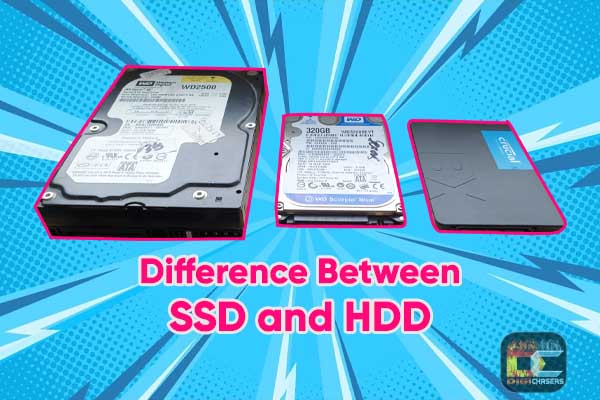Today we will discuss the differences between SSD and HDD. Everyone knows about these abbreviations, but not everyone knows what they mean.
SSD Meaning
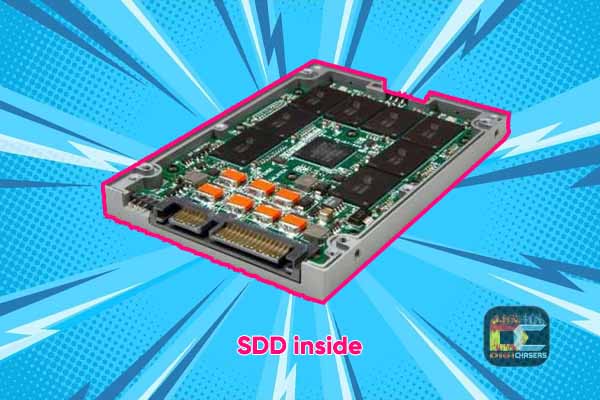
SSD shortening stands for Solid State Disk. It is a disk in which information is not written to a magnetic disk, but to several connected flash memory cards. The first SSD was tested in 1983 on a Sharp PC-5000 computer. His memory was then 128 kilobytes.
In 1989, a mechanism was developed to increase the capacity of the SSD by inserting additional memory (flash) cards. In 1991, SanDisk created an unimaginable 20-megabyte drive at the time. It cost $ 1,000. This is the explanation why SSDs developed in semiconductor technology laboratories were not widely used in the 1970s – at a high cost.
HDD meaning
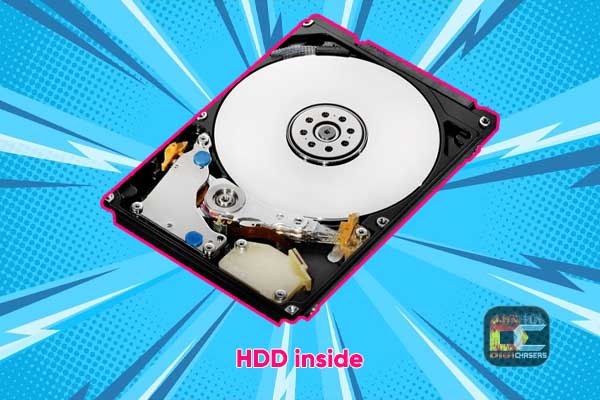
HDD shortening stands for Hard Disk Drive. The first production IBM hard disk drive, 350 disk storage, shipped in 1957 as a component of the IBM 305 RAMAC system. It is a hard drive disk that consists of hard, non-magnetized disks coated with a magnetic coating, magnetic heads, other electronic equipment, and a controller that controls it, combined into a single device.
Difference Between SSD and HDD
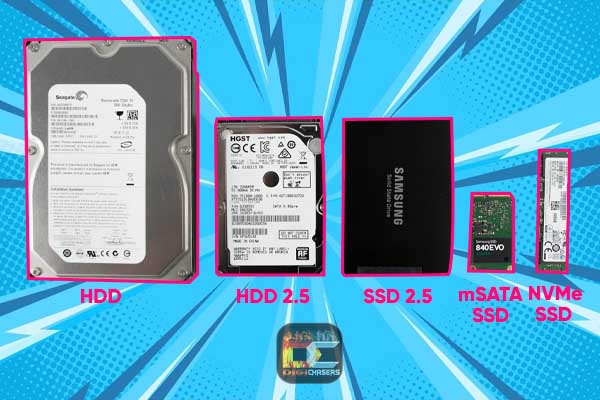
SSD works in the same way as a USB memory stick. It has a board with electrical transformers (an electrical signal is required to “wake up” the memory), fuses and several memory chips. There is usually only one such chip in a USB memory stick, which means that its capacity is small, although a lot has now been achieved. Inside the SSD does not have any disk drive like the HDD. Everything seems much simpler. HDD technology, meanwhile, is based on a disk drive and a disk on which information is written.
SSD does not have moving parts inside not like HDD with can make a lot of noises.
Advantages of SSD
SSD are more compact. This means it is small and thin enough. This means that such a drive will be inserted into ultra-thin laptops or tablets, and maybe even smartphones.
- SSDs are more compact. This means it is small and thin enough. This means that such a drive will be inserted into ultra-thin laptops or tablets, and maybe even smartphones.
- SSDs are not afraid of power surges. When the power supply suddenly shuts down, the drive usually stops working and some data may be lost. SSDs have special fuses that reduce the risk of data loss.
- SSD is resistant to shocks, shaking. This means that the information will not be lost if you shake the laptop significantly or accidentally drop it off the table. With a simple drive, a very serious disaster can happen here.
- SSD data recording speed is higher.
- SSD hard drives – resistant to magnetism. Plus, they don’t heat up, so a cooler isn’t needed like an HDD.
- Mean time between failure is 2 000 000 hours, HDD has only approximately 750 000 hours of working time.
Disadvantages of SSD
The biggest drawback of an SSD is the price, although at the moment this is no longer as big of a problem as it was 10 years ago.
Advantages of HDD
The main advantage with HDD is the price per GB and it is much easier to find a big capacity hard drives.
Disadvantages of HDD
As we already know, HDD is a lot slower than SSD, and its performance degrades over time. Hard drives are also marginally heavier and make a lot of noise.
How to Choose Between SSD and HDD
The choice should not be difficult, SSD technology is almost everywhere beats HDD technology. While there are situations where HDD is still a smart choice. HDD is worth choosing when storing very large files that do not require high speed and are not used very often (photo storage, some types of servers).
This is how the failed HDD looks from the inside.
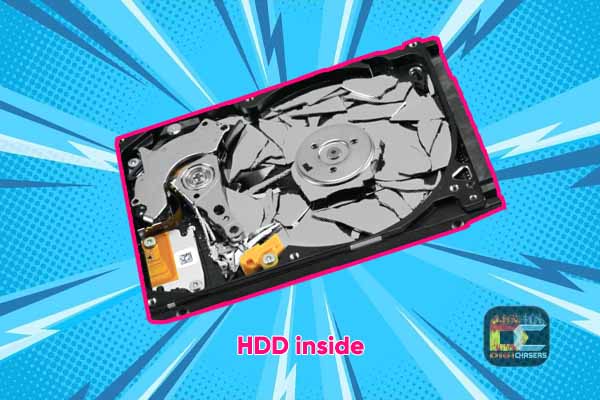
That’s why you should choose SSD disk of course if you can afford it.
Author Recommended Reads:
- Best SSD for Video Editing and Photography – Ultimate Guide
- Top 12 Best SSD for PS4 Pro 2021 – Reviews & Buyer’s Guide
- Optical Data Storage Devices: Complete Guide with Examples
We hope you like this article, and if you have additional questions you can always leave a comment or write to us in person.

